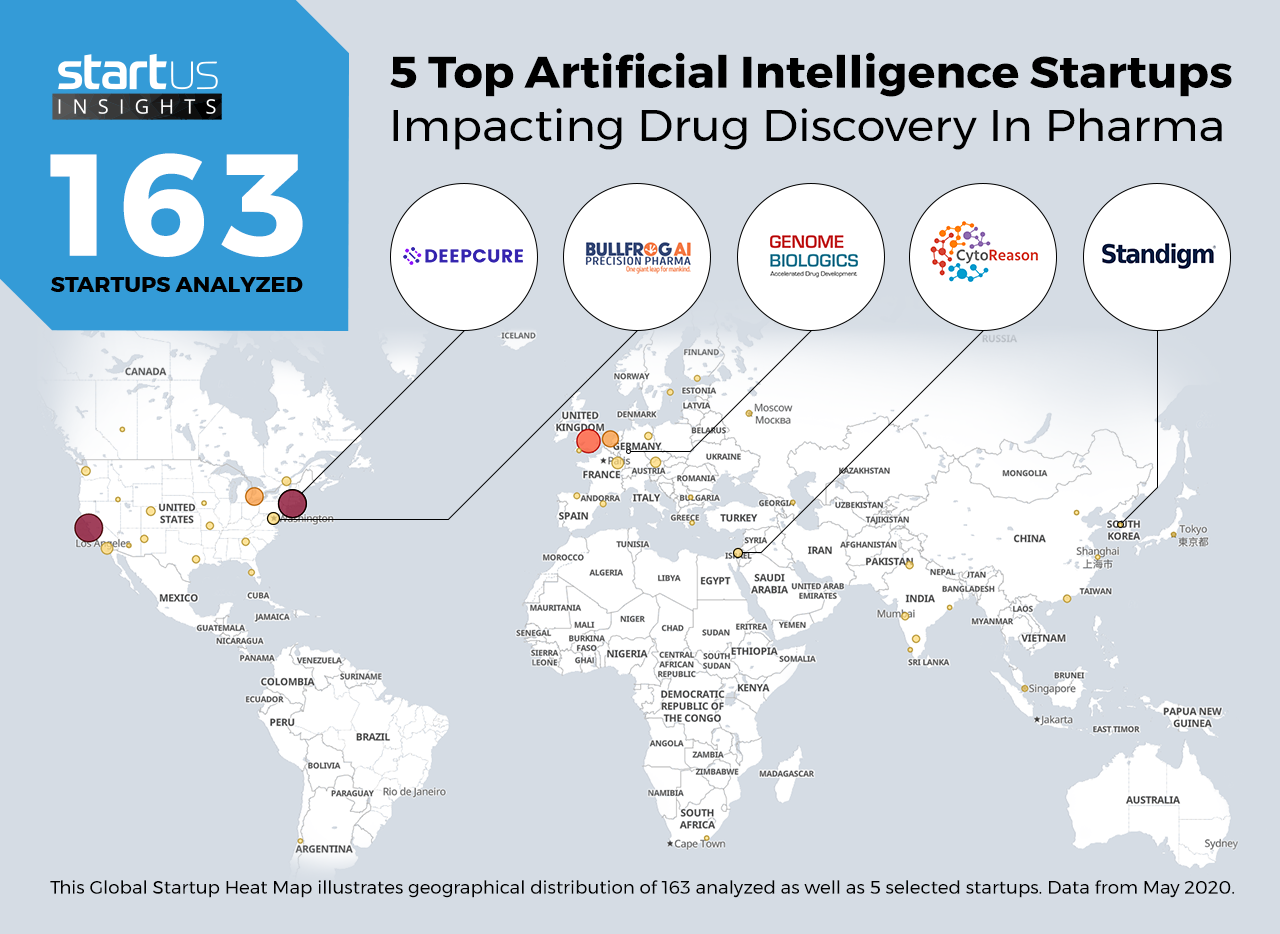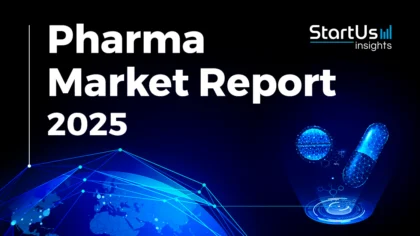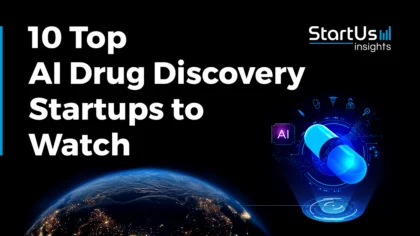Staying ahead of the technology curve means strengthening your competitive advantage. That is why we give you data-driven innovation insights into the pharma industry. This time, you get to discover five hand-picked artificial intelligence startups impacting drug discovery.
Out of 163, the Global Startup Heat Map highlights 5 Top Artificial Intelligence Startups Impacting Drug Discovery
The insights of this data-driven analysis are derived from the Big Data and Artificial Intelligence-powered StartUs Insights Discovery Platform, covering 2 093 000+ startups and scaleups globally. The platform gives you an exhaustive overview of emerging technologies and relevant startups within a specific field in just a few clicks.
The Global Startup Heat Map below reveals the distribution of the 163 exemplary startups and scaleups we analyzed for this research. Further, it highlights five AI startups that we hand-picked based on criteria such as founding year, location, funding raised, and more. You get to explore the solutions of these five startups and scaleups in this report. For insights on the other 158 artificial intelligence solutions for drug discovery, get in touch.
Standigm offers Novel Drug Design Solutions
Drug development often takes a decade of research and billions in investment before the product reaches the market. This is because the process begins with a chemical space of billions of compounds before some candidates are identified for clinical trials. AI-based solutions allow researchers to quickly design novel drugs that display the desired properties. Other than chemical data, they also analyze biomedical literature to speed up drug design and development.
South Korean startup Standigm offers novel drug design solutions. The startup’s AI-based platform, Standigm BEST, explores a latent chemical space to generate novel compounds. Once the candidates are identified, it provides biological interpretations to discover pathways and therapeutics patterns and prioritize potential targets. The startup’s solution eliminates the uncertainty in the drug discovery process to save time and costs during development.
CytoReason enables Data-Driven Target Discovery
An early step in the drug discovery process involves the identification of target molecules in human bodies that the drugs interact with. However, little is known about a large number of human genes and proteins. The rapid growth of genomics, proteomics, and other omics data in the last two decades has generated large amounts of biological data. AI-based solutions explore these datasets to offer insights on prospective targets for any disease.
Israeli startup CytoReason analyzes multi-omic, human clinical data to facilitate data-driven target discovery. The startup’s platform uses vast amounts of proprietary and public data to understand the complex systems of interactions inside cells. It uses machine learning algorithms and continual statistical learning to uncover disease-related cell/gene maps. The platform also supports research and development (R&D) efforts across the drug development cycle, speeding up the process.
Genome Biologics facilitates Preclinical Drug Discovery
Preclinical testing involves testing drugs for toxicity, pharmacodynamics, pharmacokinetics, etc., before clinical trials. AI-based solutions minimize the uncertainty in preclinical experiments by automating sample analysis for the effects of the drugs. The scalability offered by AI allows the testing of novel and existing drugs for a large number of targets at once.
Genome Biologics is a German startup that develops solutions for preclinical drug discovery. One of the startup’s products, GENIMPAS, uses pattern recognition and machine learning to match compound databases and drug discovery pipelines with profiles of disease-relevant genes. This facilitates the identification of novel compounds and repurposing of known compounds to treat cardiometabolic and cardiovascular diseases and cancers. GENISYST is the startup’s another patented solution for multiplexed diseased modeling that uses single-cell transgenics for preclinical testing.
BullFrog AI offers Late-Stug Drug Candidates
The success rate of clinical trials is very low in the drug development process. To tackle this issue, some startups use natural language processing (NLP) to scan medical and pathology reports to identify suitable patients for clinical trials. Other AI techniques assist researchers and clinicians to gather better insights about the efficacy of clinical trials and recommend appropriate changes or novel use cases.
US-based startup BullFrog AI develops bfLEAP, a proprietary AI platform to enable precision medicine. The platform analyzes clinical trial data sets to identify relationships and correlations between therapies and patients to discover novel insights for late-stage drug candidates. It parses through complex data to discover novel drug targets, identify synergistic drug combinations, and find niche patient populations that may benefit greatly from a drug.
DeepCure provides Small Molecule Therapeutics
Small molecules comprise a large portion of drugs in the market. They are often easy to develop from derivatives of known therapeutic compounds. However, small molecules may participate in other interactions that minimize their safety or efficacy. Machine learning algorithms learn from publically available structural and chemical data of small molecules to identify therapeutics with desired properties.
DeepCure is a US-based startup that discovers small molecule therapeutics. The startup combines deep learning, cloud computing, and MolDBTM, its proprietary database, to identify promising small molecules. It also accounts for the dynamic nature of the target and optimizes for absorption, distribution, metabolism, excretion, and toxicity (ADMET) properties. This reduces the time and cost involved in later drug development stages.
Discover more Pharma Startups
Pharma startups such as the examples highlighted in this report focus on precision medicine, novel therapeutics, omics technologies, bioinformatics, and machine learning. While all of these technologies play a major role in advancing the pharma industry, they only represent the tip of the iceberg. To explore pharma technologies in more detail, simply let us look into your areas of interest. For a more general overview, download our free Pharma Innovation Report to save your time and improve strategic decision-making.










